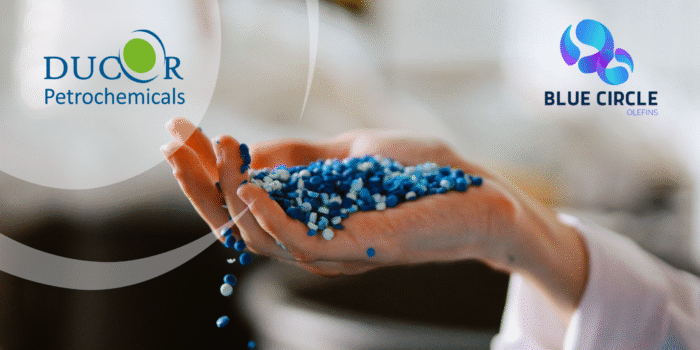The partnership aims to accelerate the availability of high-quality, circular polypropylene by integrating Blue Circle Olefins’ innovative methanol-to-olefins technology with Ducor’s flexible and customer-focused production capabilities

Ducor Petrochemicals and Blue Circle Olefins have signed a strategic agreement to jointly produce and co-market segregated bio-polypropylene and carbon-recycled polypropylene. This collaboration marks the beginning of a unique partnership that leverages the complementary strengths of both companies to meet the rising demand for sustainable polypropylene solutions across healthcare, life sciences, automotive, electrical appliances, packaging, engineering products, and household goods.
The partnership aims to accelerate the availability of high-quality, circular polypropylene by integrating Blue Circle Olefins’ innovative methanol-to-olefins (MTO) technology with Ducor’s flexible and customer-focused production capabilities. Together, the companies will offer a broad portfolio of polypropylene grades designed to meet diverse customer specifications and manufactured from recycled or fully bio-based propylene.
Ralph Koekkoek, CEO of Blue Circle Olefins, stated: “The partnership with Ducor marks an important milestone in the development of our MTO project. Together, we can provide our clients with a wide range of polypropylene grades tailored to their needs and produced using recycled or 100 per cent bio-based propylene. This collaboration is a strong demonstration of our ambition to supply the chemical industry with 100 per cent circular olefins.”
Hanno Schouten, CEO of Ducor Petrochemicals, added: “The unique setup of the Blue Circle Olefins MTO project, combined with our adaptable and customer-driven production assets, will enable us to deliver the next generation of tailor-made, sustainable polypropylene products. This agreement underscores our continued commitment to Europe. Together, we are building a fully circular value chain that will support our customers in transitioning to 100 per cent circular polypropylene by 2030.”
Subscribe to our newsletter & stay updated.